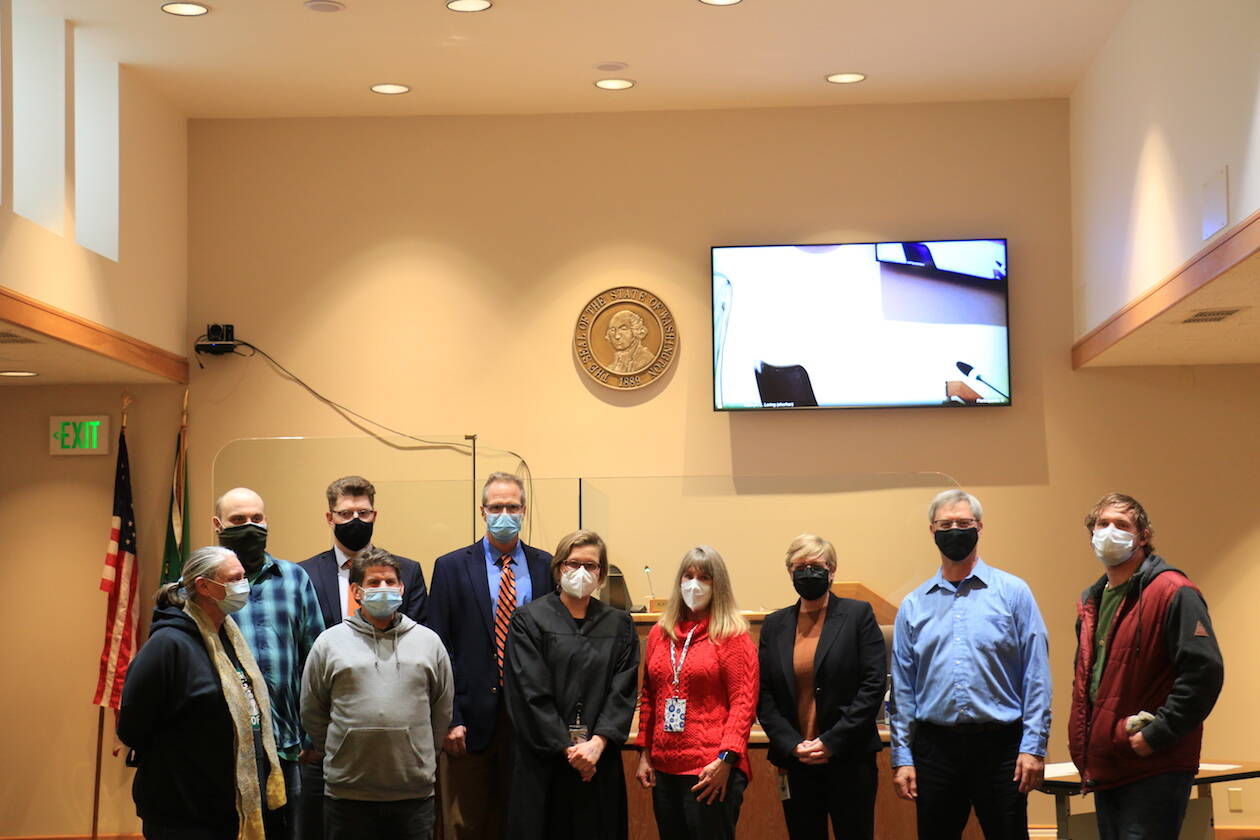Family and friends gathered, teary-eyed and smiling, while Brian Borquist and Zachary Kostechko celebrated their graduation from San Juan County drug court. Both are residents of Orcas Island.
“It was emotional. It was amazing to see how many people came out to support the drug court participants,” said Ruby Adrian, partner of Borquist. The two met in recovery and had gone through his journey of drug court together.
The program, which launched in 2019, offers a therapeutic and guided way to become clean and sober with frequent judicial supervision. It acts as rehabilitation rather than punishment. The model that is used consists of an 18- to 24-month drug court program. However, there is no technical end date. If someone reaches the 24 mark and is not quite ready, the court allows them more time. Only multiple violations can get participants removed from drug court.
So far, there have been seven participants total who have gone through the drug court. Of those, five of them have been successful.
Brad Fincher, a probation officer and drug court case manager, said anyone can qualify if they are arrested for a crime that has a direct correlation to drug use. If they choose not to go to drug court, ultimately they could be convicted, which could result in prison time.
“Drug court is based on a positive atmosphere, the person goes into treatment, they’re getting outpatient treatment services,” Fincher said. “Some of these outpatient treatment services consist of using Compass Healthcare and having counselors.”
Graduation from drug court allows Superior Court to drop all criminal charges.
“Having that title of felon dropped is life-changing because it’s a lot easier to look for work and housing and even just social things are easier,” said Adrian, adding that, especially in the San Juan Islands where housing is scarce, not having a criminal record makes the search for a home easier.
Adrian said that one of the most valuable aspects of drug court is the community that one is able to build. One of the hardest things about getting sober is not having other sober friends. Participants gain professional support as well as friends with whom they can stay clean and sober. The tight-knit community of the islands is also an aspect that makes the San Juan County drug court unique.
“Everybody knows everybody and everybody knows about everybody else,” Fincher said. “So in some cases, as far as management, it makes our job easier because nobody can get away with anything for a long period of time, and I like to think that it helps the participants even be more accountable for the things they need to do and their responsibilities.”
Adrian said the community holding participants accountable can be very beneficial. One of the hardest parts about their journey was when Borquist had relapsed, she said. The support they’ve received has made a huge impact on their motivation for staying clean.
“It was awful,” she said. “It was so hard. But the drug court program, they didn’t drop him.”
The positive attention Borquist would get after successfully staying clean acted as fuel for the couple.
“People would stop Borquist on the street and just say ‘Wow, you look amazing!’” Adrian exclaimed. “To see that support even after he had made mistakes was wonderful.”
While the program is still new, the San Juan County Drug Court looks forward to utilizing both standard drug court policy and the vibrant support from the small community of the islands in order to help those looking to get sober.
“We want participants to succeed and try to put them in the best atmosphere for success,” Fincher said.



